THE LAB

Open residency project
Ocular Lab
West Brunswick
WEEK ONE
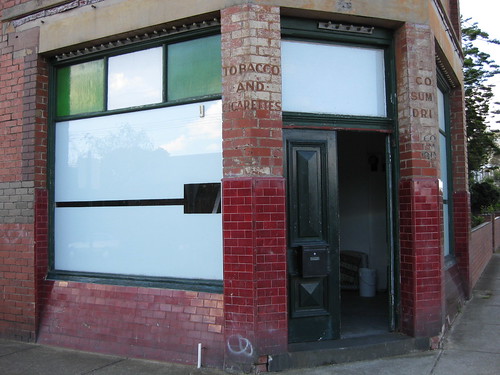
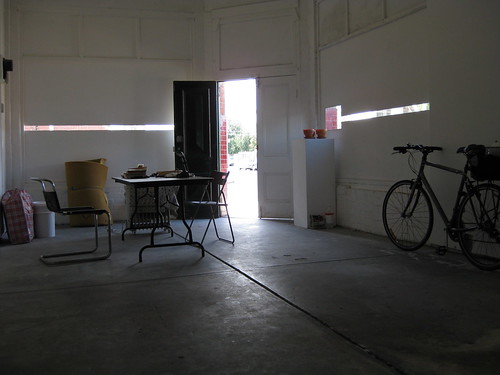
NOTES.


|
For the first week it felt right to observe things as they were in the Lab. The given conditions, the objects in the room when I arrived – a plinth, a ladder, a trestle table, an amplifier and some foam – and the movement of light and air into and through the space. It was surprising how much was going on in and at the edges of an empty room. I felt no need to remove the objects, figuring I’d wait to see who had left them and what they might be useful for. For the first few days I was strongly mindful of the practices of Thea Rechner and John Borley, as I paid attention to air and light and sat on the front step with the doors open making eye contact with passing drivers.



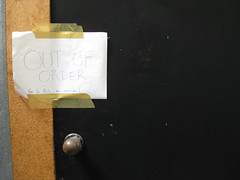
|
Documenting the Lab’s internal texts and documents – a child’s drawing in the kitchen, handwritten notes charting the building’s plumbing problems, and a longstanding appeal to go elsewhere on the toilet door.
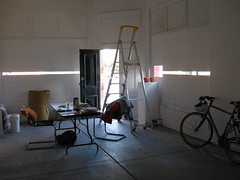

|
Scouring the Sydney Rd op shops for blankets, cushions and tea provisions, creating a warm and comfortable spot to sit, read and write.









|
On the first day I planted seeds of the green manure Red Clover (Trifolium pratense) into potting mix in three pots, using gallery ashtrays as saucers and positioning them on the plinth by the best available light into the room. Continually re-positioning the pots became a device for observing and tracking sunlight where it enters and skirts the perimeter of the building.


|
Coming early to see the effect of direct light on the east facing Pearson St window. Considering shifting the ‘opening hours’ to the morning at some stage, to take advantage of the direct light and warmth.


|
Propping the doors open to differing degrees with available objects.

|
READING:

The Humanure Handbook: a guide to composting human manure
Joseph Jenkins
3rd edition
‘DO’S AND DON’TS OF A THERMOPHILIC TOILET COMPOSTING SYSTEM
DO – Collect urine, feces, and toilet paper in the same receptacle. Urine provides essential moisture and nitrogen.
DO – Keep a supply of clean, organic cover material handy to the toilet at all times. Rotting sawdust, peat moss, leaf mould, and other such cover materials prevent odor, absorb excess moisture and balance the C/N ratio.
DO – Deposit humanure into a depression in the top center of the compost pile, not around edges.
DO – Keep the top of the compost pile somewhat flat. This allows the compost pile to absorb rainwater, and makes it easy to cover fresh material added to the pile.
DON’T- Turn the compost pile if it is being continuously added to and a batch is not available. Allow the active thermophilic layer in the upper part of the pile to remain undisturbed.
DON’T – Expect thermophilic activity until a sufficient mass has accumulated.
DON’T – Use the compost before it has fully aged. This means one year after the pile has been constructed, or two years if the humanure originated from a diseased population.
DON’T – Worry about your compost. If it does not heat to your satisfaction, let it age for a prolonged period, then use it for horticultural purposes.’
p.170
|
The main surprise in the room was to notice the beautiful movement of light across the walls as it gets reflected by the windows of passing cars through the viewing strips cut by Mark Shorter into the Lab’s two window panes. The movement in this footage becomes a register of my breathing.


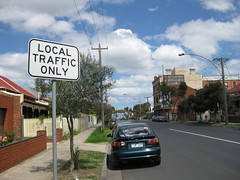

|
Taking in the view out, from front and back, and watching and listening to the significant volume of passing traffic. The motion of cars, bikes and trucks around the roundabout, the thump of approaching joggers and chats with the landlady, Mrs Vignoli, when she passes by.


|
Organising waste collection – rubbish, organic and rubbery water from the hot water bottle.



|
At the very moment the space was due to be officially ‘open’, I found myself locked out. Given my interest in exploring ways to open the space, its sudden impenetrability was funny and curious. Lab members came, Bianca strategised, various implements were collected and tried and Harry, a passing builder, stopped to help us force entry and repair the damage.



|
Inhabiting the streetfront and footpath, where direct sun falls in the afternoon and bodies gravitate.


|
A substitute humanure compost toilet assembled and operational. Situated in back area next to the out of order flushing toilet, using a fragrant cypress sawdust from timbers salvaged from the Black Saturday bushfires.


|
Opening the Lab with existing signage and open doors.

|
On Sunday an amazing double, verging on triple, rainbow. Ending the week with a reminder of Thea, our synchronicities and changed places – Sydney and Melbourne.
RESOURCES
Humble Pile, a nutrient recovery project by Nance Klehm
The Humanure Handbook by Joseph Jenkins
WITH THANKS
To my many hosts and helpers…Sandra Bridie, Tom Nicholson, Clare Land, Julie Davies, Alex Rizkalla, Ocular Lab, Thea Rechner, Lucas Ihlein, Josie Cavallaro, Anne Kay, Bianca Hester, Kylie Wilkinson, John Najjar Furniture Forever.